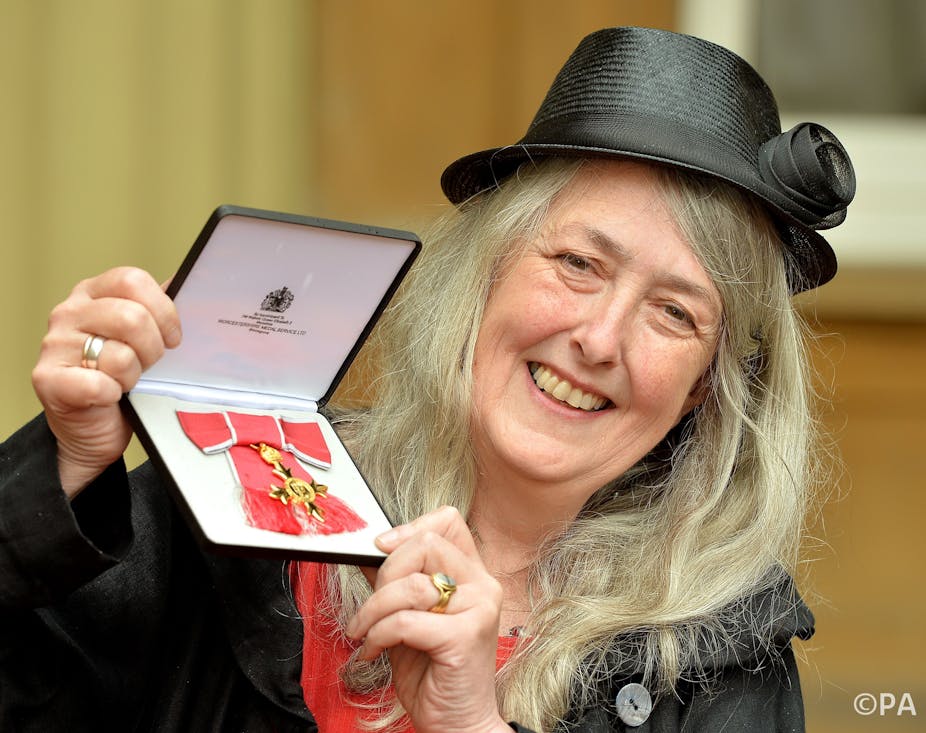Mary Beard, talking to the Radio Times, has been the latest to jump into the debate triggered by BBC head of television Danny Cohen’s decree that there should be no more all-male gatherings on the corporation’s comedy panel shows. Beard said that she “dreads” the idea of having quotas of women, and thinks that it could lead to women contributors being “vilified”.
She is right to think so. This is a thorny issue. But it goes deeper than the problems caused by having a “quota” as such: laughter, like any other form of social activity, is gendered. Stating this is not to lapse into foolish generalisations about male versus female senses of humour.
The sexual politics of funniness is a many-sided issue, and the recent debate has only served to underline the fact that there are prevailing preconceptions about the links between men, women and comedy. Nerves have been touched, feathers ruffled, and that rather creaky old debate unavoidably headlined “are women funny?” is enjoying another moment in the sun.
Anyone with a milligram of sensitivity to the history of British comedy knows that is a daft question anyway. Are women funny? Hylda Baker, Joyce Grenfell, Beryl Reid, Margaret Rutherford, Penelope Keith, Victoria Wood, French and Saunders, Jo Brand, Gina Yashere, Meera Syal, Miranda Hart and Sarah Millican provide just the start of the obvious answer.
And yet when I teach a course on comedy and identity to students at a university that prides itself (not always convincingly) on its liberal credentials, many of them tell me, year after year, male and female alike, that men are just, well, funnier.
The reasons for this tenacious misconception go deeper than the reputations of individual performers. The relationship between gender and joking in friendship groups and other social interactions is deeply rooted in understandings of masculinity. Any pub in any British town will contain noisy clusters of male mates, and the predominant noise is laughter, that strutting-rooster laughter poised somewhere between a boast, a cackle and a bray, elicited mostly by what has come to be labelled as banter.
The social history of that word cries out to be researched, but its current vibrancy seems tied to a wider renaissance in blokey boorishness. Banter is laddishness sung in the key of laughs, simultaneously offering a communicative glue to bind mates into webs of friendship, competitiveness and pecking order, and erecting a fence to keep outsiders in their excluded place. Women, needless to say, are the primary target of this exclusionary practice.
Television shows like Mock the Week, Have I Got News For You, QI and (over on Channel 4) Eight Out of Ten Cats bring banter culture into the entertainment sphere. Their participants might bristle as such a designation, since they all, in varying ways, aim at something a little more comedically elevated than pub lad-laughs – although you would have to visit some decidedly rough pubs to find such a sustained outpouring of misogynistic bile as was meted out to the late Paula Yates on her unfortunate appearance on Have I Got News For You back in 1995.
Many shows in this genre do involve female participants, but they are almost always in the minority, and Mock the Week especially frequently resembles a coagulating lagoon of laugh-chasing testosterone. Cohen’s determination to eradicate male-only casts has made that series a particular target, which has prompted its host Dara Ó Briain to offer a defence. “It’s remarkable” he somewhat evasively told the Radio Times, “that this amount of time is spent debating women in comedy shows rather than, say, Question Time.”
Television is hardly devoid of programmes which privilege men (women are hardly central, to put it mildly, in Top Gear or Match of the Day), but Ó Briain is on to something more interesting when he observes, reflecting on male claims to comic pre-eminence, “men need it more. They need … the external validation.”
In other words, the ability to garner laughs, crucially from other men, is a central constituent ingredient of how masculinity is recognised, reproduced and celebrated. Most male comedians are engaged in the anxious business of proving what kind of men they are, and female performers would only get in the way. As usual, Mock the Week shows this dynamic at its starkest and least lovely, with sextets of show-offy blokes locked into ever-decreasing spirals of banter characterised by a desperation to impress.
As ever, other social factors complicate this picture and offer differing versions. British comedy is always obsessively concerned with class, ensuring the masculinity question is favoured differently according to the class palate of the text in question. QI, already less macho courtesy of host Stephen Fry’s tweedily pass-the-port inflection of English gayness, proffers a masculinity pivoted on arcane knowledge and can accommodate numerous female participants (provided Fry remains in donnish control).
Alexander Armstrong and Richard Osman, in the adjacent genre of the game show, have perfect their class-differentiated knight-and-squire act on BBC1’s Pointless, while in the outer reaches of ITV2, surely the channel where pub banter is most at home, Celebrity Juice subjects leering machismo to arch deconstruction via the persona of the mocked yet indulged Keith Lemon.
All of which suggests Danny Cohen’s quest for more comedic gender equality has a hill to climb. More women on these shows might be a starting point, but comedy is too slippery and wily to respond well to a well-intentioned but ultimately clumsy quota mentality, and this particular kind of female-excluding comedy is too central in the building of masculine identities to become gender-neutral any time soon.

